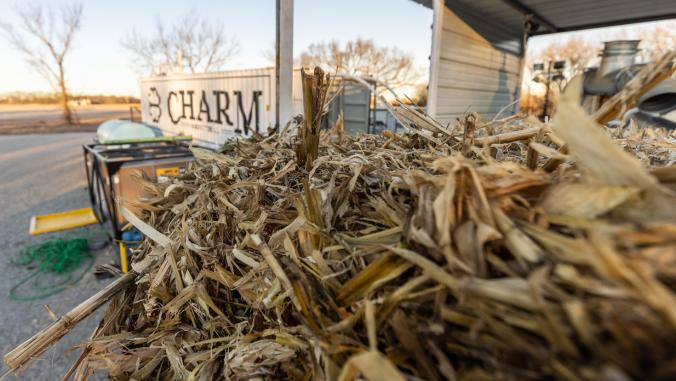The forest conservation nonprofit Canopy Planet announced Monday that it won $60 million in funding from The Audacious Project funding initiative at TED.
Canopy will use the funding from Audacious to catalyze connections between next-generation textile material innovators and big brands including H&M, Zara, Penguin Random House, Stella McCartney and LVMH. Canopy plans to use the $60 million to establish production hubs for textile and paper materials in North America, India and Europe and later Brazil, South East Asia and China.
The Audacious Project brings together funding from Bill & Melinda Gates Foundation, ELMA Philanthropies, Emerson Collective and others, and directs that money to a cohort of solution projects each year.
Canopy works with textile, fashion and packaging brands to reinvent supply chains, moving them away from ancient and endangered forests that have traditionally been the feed source for paper, packaging and viscose, a textile made from plant pulp.
According to Canopy, viscose, one of the most popular textile materials, has been marketed as a more environmentally friendly material compared to polyester. But its supply chain depends on cutting down forests in desperate need of protection, making it just as bad as the plastic and fossil fuel supply chain for polyester.
The next-generation materials for fabrics, paper and packaging are supposed to be low-impact environmentally, shunning pulp from forests and instead deriving from food, agriculture or textile wastes. According to the press release issued by Canopy, such waste-based fibers have between 95 percent and 130 percent less greenhouse gas emissions associated with them and 88 percent to 100 percent lower land-use impacts. At COP 27 in Egypt in March, Canopy got these companies and others to commit to an advanced buying commitment to purchase a certain amount of next-gen fiber by 2030.
Canopy works with textile, fashion and packaging brands to reinvent supply chains, moving them away from ancient and endangered forests that have traditionally been the feed source for paper, packaging and viscose.
Canopy is working to connect with its network of well-known brands with material innovators including Renewcell, which developed a process for turning cotton fabric waste into viscose. The company has two mills in Sweden, where it is ramping up production after launching in retail in 2020. Another is Spinnova, based in Finland, which uses agricultural fibers such as wheat to create textiles. 9Fiber uses agri-waste to create packaging products without petroleum or timber. Craste in India is tackling two problems at once — pollution from farmer’s burning crops and packaging production — by using agricultural waste pulp as its input for packaging materials.
"Moving towards more sustainable alternatives for our materials and packaging plays a crucial role in our journey towards circularity," Leyla Ertur, H&M Group’s head of sustainability, said on Canopy’s website regarding the prize. "Together with Canopy and other industry leaders, we want to use our size and scale to continue driving demand for low-carbon material solutions while building scalability faster."
Right now the demand for these low-impact fibers outstrips supply, and the funding is meant to help the startups scale up these supply chains. Canopy’s founder and executive director, Nicole Rycroft, says it is strengthening market conditions by using its network of 900 brands to send a signal to conventional producers that the demand exists for these lower-impact options; scaling solutions by mobilizing investment to transform the infrastructure; and supporting the conservation of forests in endangered areas.
"We plan to mainstream next-gen [materials] to a critical tipping point, and to help galvanize the $78 billion needed to build and retrofit next-gen mills globally," Rycroft wrote in an email. "This shift would allow for the conservation of an additional [222 million acres] of forest around the world and will perhaps even create a model that other supply chains can build on."
Since 2018, The Audacious Project has funded 49 projects and directed $4.2 billion in funding. Along with Canopy, this year’s 10 grantees include Renew2030, a coalition accelerating the shift to wind and solar power, and the Innovative Genomics Institute, which is researching using CRISPR technology on microbiome organisms that could provide relief for childhood asthma. In 2021, the project funded electric car projects, international refugee assistance initiatives and Code for America.
Canopy’s 2020 report, "Survival: A pulp thriller," outlines a plan for saving forests between 2020 and 2030. And according to the organization’s website, it has conserved 25 million acres of forests and supported the creation of three circular pulp mills using textile or agricultural waste as inputs.






